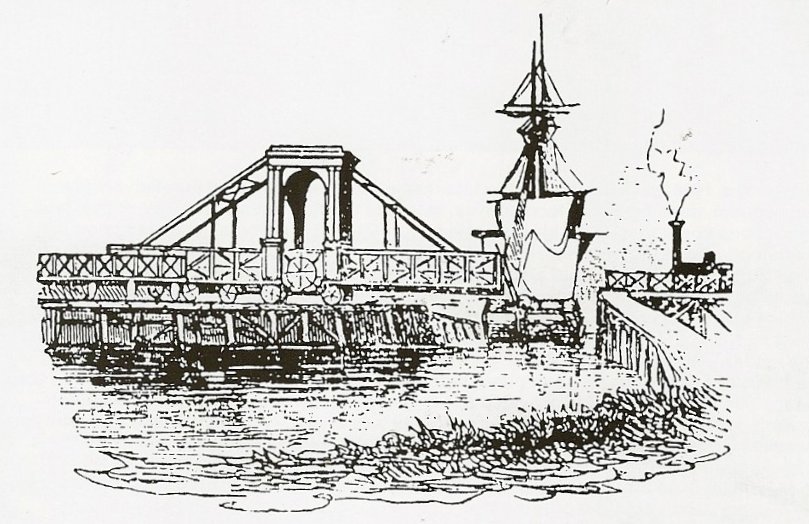
1851
BULVEHYTHE TO HASTING EXTENSION
On Thursday 13th February 1851 the line was extended from Bulverhythe (St. Leonards) to Hastings joining up with the South Eastern Railway at Bo-Peep Junction.
Railway accident on the
L.B.S.C.R.
New Cross on 14th March 1851
"LONG LIVE THE SPIRIT
OF THE REBEL RAILWAY WORKERS”
(This was a slogan that was graffitied on the wall of the Hollingbury abbtoir in the 1970s,
does anybody of this piece of graffiti?)
For its time, the LB&SCR was regarded as a good employer. In 1851 it created a benevolent
fund for members of its staff who had become incapacitated, and from 1854 operated a savings bank for employees.
The Daily Telegraph said in 1860 that :
“The reason why there are not 10 accidents where we have 1 is the praiseworthy pluck and perseverance of thousands of poor fellows, who, with noble sense of the enormous trust imposed upon them, have not permitted either abuse, tyranny or oppression to impoverish their integrity or honesty.”
BEFORE THE DAYS OF THE RAILWAY
TRADE UNIONS
Twelve railway strikes are recorded between 1831 - 1871, most were of fairly short duration
and of which seven involved enginemen, and four by porters. The strike of enginemen on the North Eastern Railway in April, 1867 lasted two weeks and was broken by the N.E.R.
employing blacklegs recruiting from other railway companies and giving special payments to those grades not joining the strike.
During the early days of unions sectional unions which were formed were short lived because of the lack of power to combat the methods of the railway company directors.
IN STILL SPIRIT OF OBEDIENCE
Most companies thought it desirable to employ only literate men. Even in the literacy test
applicants for employment were required to pass, the attempt was made to install a spirit of
obedience. Those seeking employment on the Great Western Railway in 1837 were required to write these words:
‘Zealous strive to excel. Industry is commendable. Perseverance deserves success.
Quietude of mind is a treasure.’
FINES AND SUSPENSIONS
An elaborate system of fines and suspensions kept the discipline of the railways service as
severe as it was in the Army. On the Eastern Counties Railway, in August 1850, two drivers
were fine 2s.6d. each because a cotter pin broke in a drawbar on their train of 56 wagons.
The cost of a new counter pin was 3d.
BLACKLISTING AND EVICTIONS
Thousands of railwaymen lived in cottages owned by the companied that employed them. For these, joining a trade union might mean not only the sack and “black-listing” - which
precluded similar employment with other companies - but also eviction and ultimate resort to the workhouse, In May 1871, some of the engine drivers who struck work on the London
North Western Railway were evicted from their company owned homes in Camden Town.
DISCIPLINE
Discipline was severe and there was an elaborate system of fines for every sort of alleged
misdemeanour.
Discipline on the Taff Vale Railway was perhaps the strictest to all. The rules of that company included the warning that ‘not an instance of intoxication, singing, whistling or levity while on duty will be overlooked, and besides being dismissed the the offender will be liable for punishment.'
LONDON BRIGHTON AND SOUTH
COAST RAILWAY CIRCULAR 1857
The directors are in principle opposed to combination of any description for the purpose of interfering with the natural course of trade. They think that masters and men should be left in every establishment to settle their differences without foreign interference or dictation.
Railway accidents on the
L.B.S.C.R.
from http://www.railwaysarchive.co.uk
PHOTOGRAPHER UNKNOWN
The scene at Newmarket Arch de-railment on the 6th June 1851
Newmarket Arch Nr. Falmer on 6th June 1851 involving driver
Samuel Jackson & fireman George Chase
SEE PAGE PAGE

PHOTOGRAPHER UNKNOWN
The Ford telescope bridge over the river Arun,
was the first ever bridge of its kind to be constructed
Ford, Arun Bridge on 27th November 1851
no mention of Enginemen
SEE SUB PAGE